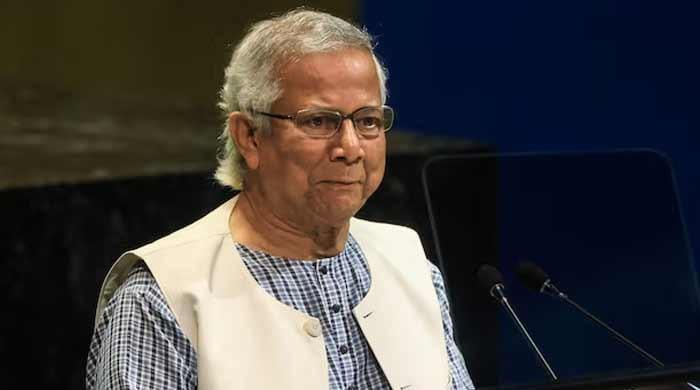- The caretaker government of Bangladesh approved the National Charter in July.
- The Charter seeks to reshape politics, the constitution and institutions.
- Yunus says political parties will accept it in the interest of the nation.
Bangladesh will hold a national referendum on the implementation of its “July Charter” for state reform, drawn up after last year’s deadly student-led uprising, Muhammad Yunus, the head of the country’s caretaker government, said Thursday.
He also reiterated that legislative elections will be held in the first half of February and that they will be free and fair.
The caretaker government on Thursday approved the decree implementing the National Charter (constitutional reform) of July 2025, and it will be implemented based on the result of the referendum.
“We have decided that the referendum will take place on the same day as the national parliamentary elections, that is, in the first half of February,” Nobel laureate Yunus said in a televised address to the nation.
“This will not hinder the reform process. On the contrary, it will make the elections more festive and profitable,” he said.
The July Charter aims to reshape the country’s politics and institutions and grant constitutional recognition to the 2024 uprising that forced longtime Prime Minister Sheikh Hasina to flee to India.
These include increased representation of women, limiting the term of office of the Prime Minister, strengthening presidential powers, expanding fundamental rights and ensuring judicial independence.
A majority of political parties signed the charter in October, but the National Citizens’ Party, formed by the leaders of last year’s movement and four left-wing parties, boycotted it.
The NCP said it had stayed away due to the lack of a legal framework or binding guarantee for the implementation of the commitments made in the charter.
Supporters see the charter as the foundation for institutional reform. Critics say its impact could be largely symbolic without a legal framework or parliamentary consensus.
“I hope that political parties will accept our decision in the greater interest of the nation,” Yunus said.
“The country will head towards festive national elections and enter a ‘New Bangladesh’.”




